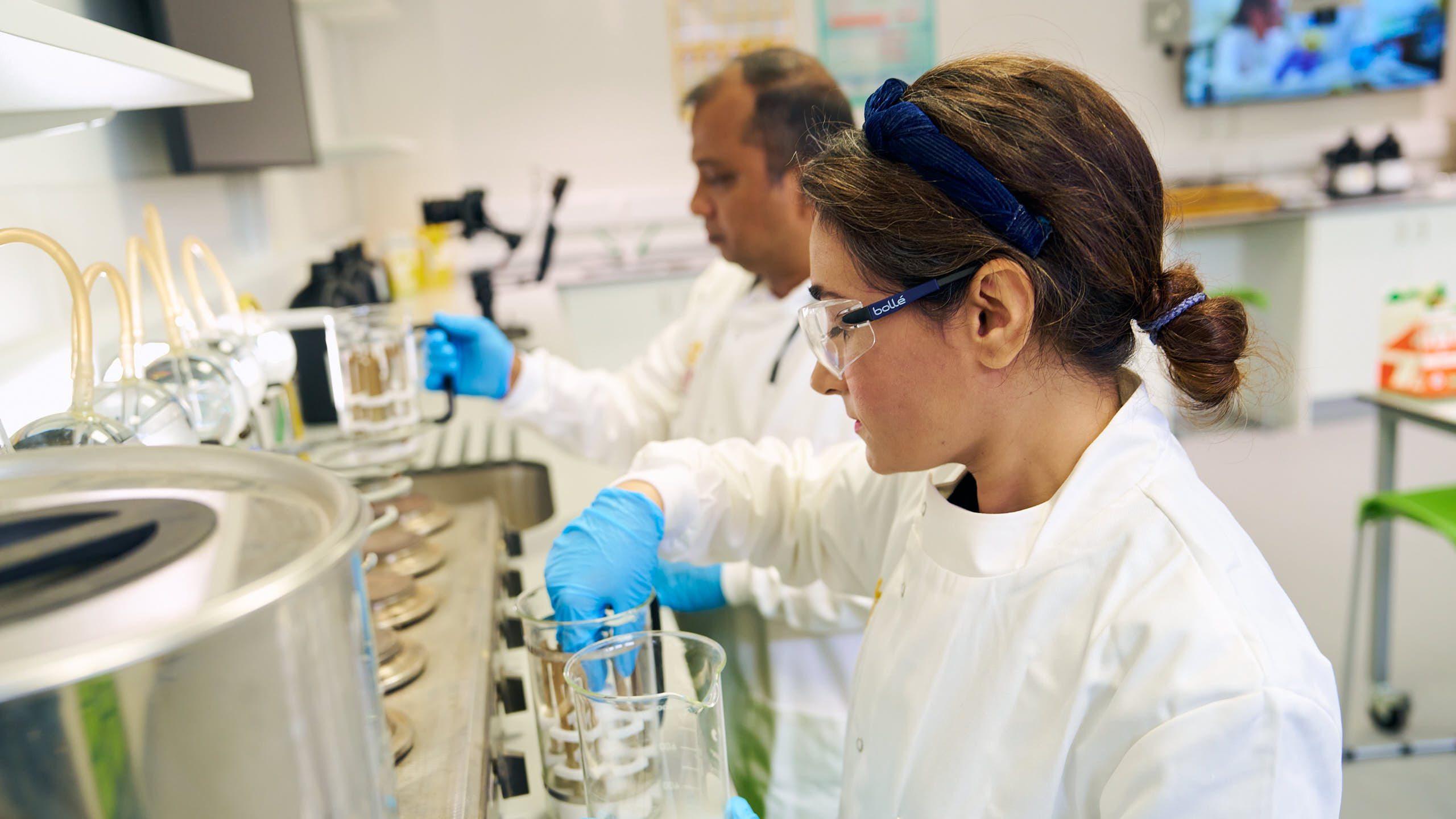Royal Agricultural University excels once again at knowledge exchange and research in its 180th year

23 September 2025
The Royal Agricultural University (RAU) once again leads the way among small universities for its record of knowledge exchange with industry and the public sector.
In an annual Knowledge Exchange Framework (KEF) assessment conducted by Research England, the University - which celebrates its 180th anniversary this year having been founded in 1845 as the first agricultural college in the English-speaking world - was particularly commended for its work with business, its professional development activity, and its community engagement.
The RAU is part of the STEM (Science, Technology, Engineering, and Mathematics) group of nine small specialist universities and institutes in the health, engineering, and agricultural sectors. Over the last four years, the RAU has been ranked either first or second in this group – a consistent performance since 2021 when the survey started.
Professor Mark Horton, the RAU’s Pro Vice-Chancellor for Research and Enterprise, said: “The RAU has always been strong in applied research in the land sector and knowledge is key to driving sustainable growth, enabling food security, and a healthy farming sector.
“With our new £6m state of the art laboratories, which opened in April, we hope to be able to increase our contribution, as a key location for training and industrial collaboration.
“We are particularly proud of the role our agritech centre Farm491 has played over the years to drive connections with industries in the land sector, as well as the entrepreneurial skills of the students, many of whom go on to set up small start-up companies.”
Another indicator of the University’s research strength came from the annual publication of THE Global Impact Rankings. These are based around the 17 UN Sustainable Development Goals (SDGs) and the RAU submitted for three SDGs - Zero Hunger, Sustainable Cities, and Life on Land.
Professor Horton commented: “More than 2,500 global universities are assessed and, for Life and Land, the RAU was ranked in the top 200 universities worldwide. For Zero Hunger it ranked in the top 300, and for Sustainable Cities it was in the top 600 institutions.
“Compared to the other players, we are a very small university but these results underline our strong sustainability ethos, at both institutional and research level, and we are proud to be recognised in these rankings for punching above our weight.”